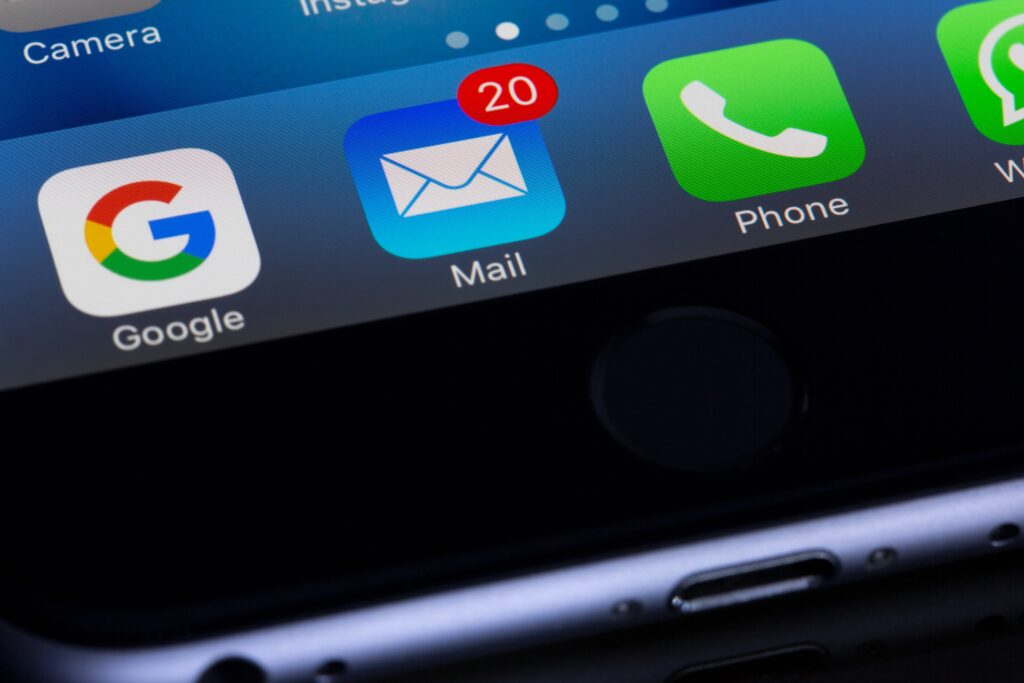Whether you are an upcoming young professional or a seasoned manager, email writing is an important aspect of business communication. Thanks to what is often seen as the mysteries of English grammar and subtleties of the written word, it can be a struggle. That is mainly true if you must motivate busy people to address or respond to a touchy subject. To write a great email. You must know two things- mistakes to avoid, and next-level strategies to move ahead. But first thing first, you must know the tips to write a professional email.
Important Tips to write a Professional email
Anatomy of a good email- Every email has the same basic structure. It includes a subject line, email body, greeting, and closing. But, as with every written form of professional communication, there is a correct way to do it and email etiquette that must be followed. Here is how to write a professional email.
- Subject Line- The subject line could be the most significant part of an email, though it is often overlooked in favor of the email body. But if you are cold emailing someone, or just developing a professional relation, your subject line can tempt people to open the email as well as set high expectations about what is inside the email. On the contrary, a poorly crafted or general subject line can discourage the reader and your email may land in the spam folder. Experts say that you must spend double the amount of time writing the right subject line as you do while writing the body because if readers do not open an email, it does not matter.
- Openers- Openers play an important role in professional email writing. In most of the professional email communication, you must include a greeting to acknowledge the reader before diving into the main message or request. The expectation is when you are on an email chain with close colleagues, it becomes natural to drop the opener. Though it may at first feel like a faux pas, it indicates a professional rapport.

- Body- One of the most important tips to write a professional email revolves around the email body. It is the meat of your email. Make sure it has a clear and specific purpose, like getting feedback on a presentation or arranging a meeting with a new customer. It must be concise. That way, people will read it, instead of skimming it and missing important information. If you can, then boil it down to a few sentences. And for emails that need more detail and length, keep it as much focused as you can. According to professionals, no one likes to receive a novel. So, better keep it between three, four, or five lines.
- Closings- One of the most important tips to write a professional email is to end things well. In professional email communication, just like you start things on the right foot with your greetings, you must also end things well. This means drafting a friendly sign-off. And there are a lot of choices to select from. You must choose a closing that feels genuine to your personality and tailor it as per the relationship to ensure the right level of professionalism. On the contrary, for effective email communication in the workplace, it is better to avoid words like “sent from iPhone”, “thanx”, and “love.”
Professional Email Communication Mistakes to Avoid
Just as every email is a chance for professional growth, there is a potential to fall into common email writing bad habits. Here are a few mistakes that you must avoid for writing an effective email communication in the workplace.
1. Omit essential Oxford commas- One of the most significant email writing rules is to stop using unnecessary commas. The Oxford comma can be slightly polarizing while thinking about how to write a correct email, based on which style guide is used for professional communication in your industry- it is generally ignored as a clarification tool. Either way may have strong opinions about it. But, leaving them can lead to confusion, based on the sentence.
While the Oxford comma may not be appropriate in certain contexts, it is generally a great idea to use them in emails. This is so because it can help you to save time and avoid miscommunication, legal trouble, and confusion.
2. Hedging- Grammarly users know about hedging that it better to omit it than leave it, mainly in emails. And, if you are worried that you will sound impolite, do not worry. Contrary to the popular belief, hedging makes you sound less confident, which can finally weaken your writing. Instead, state your opinion or idea, then define the “why” behind your answer. This way, you and your message will be understood better.
3. Long or unclear copy- Ask yourself, would you like to read an email that is about 1,000 words long? Of course, not. Most of the people skim emails that are long. And, if you add hard-to-follow sentences and mixed messages to your email, then there are fewer chances of getting a satisfactory answer. One of the tips to write a professional email is to keep it short and focus on the matter. You must end your email with a call to action, a demanded response date, and in the email, you must make it clear that you are open to queries and follow-ups.

4. Being too formal or casual- Depending on your circumstances, vacillating too much to the formal or casual writing can be a big misstep. Being overly causal is considered as a big mistake, but stiff, formal language can be damaging to your email message. To maintain a perfect balance between casual and formal, the key is thinking about the relationship between yourself and the recipient and take social clues as your communication continues.
5. Cliches- Not every email clich is regarded as a cardinal sin. Few aspects of your emails are bound to be formulaic. After all, most of the emails have a similar basic structure, and there are phrases that you may utilize to ensure clarity or cover the bases. But, if you are going to repeat the phrases, ensure that you have a clear objective. It is better to edit the clichés whenever possible as they can annoy people. Here are some of the top email cliches to avoid.
- Please find attached
- Thank you in advance
- Per our conversation
- I look forward to hearing from you
- To whom it may concern
- Sorry for the late reply
- I hope you are doing well
6. Repetition- Often people repeat words within the same para, twice in 2 sentences, and just too close to go overlooked. While it is not the worst mistake, it is another thing that can make readers tune out. You can avoid this by reading your draft loud, utilizing the text-to-speech function, or getting it checked by someone else before sending it. You can also take help from Grammarly as it can help you to catch overused or repeated words.
7. Robotic language- Email may be a descendant of snail mail, but that does not mean that your messages should sound like an old version of yourself. In fact, emails should sound like a person is writing it. So, using words that sound like coming from a Victorian novel is not the right move if you want to connect with your audience. Let us face it. Nobody wants to read a college textbook. Everyone either wants to read a blog, an article, or a real conversation. They are people, not robots. So, converse like how you would do sitting in a coffee shop.
Keeping these important tips to write a professional email will help you achieve a better response.

